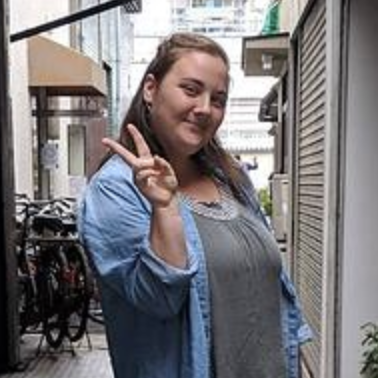Why I Chose to Teach in a Japan Public Middle School
Written By: Haley Olds | Updated: June 29, 2023
Written By: Haley Olds
Updated: June 29, 2023

I have always thought middle schoolers were terrifying. As my favorite comedian John Mulaney says, they will make fun of you but in the most accurate way. I was prepared for them to be unruly and unfocused, making my life a living hell (I mean, you’ve been in an American middle school before, right?).
Middle school for me had been unpleasant and awkward, like most people’s experiences. So when I was told I’d have to return to one and not only stand in front of the class everyday, but teach it, I was a bit petrified.
Allow me to backpedal first...
After taking International TEFL Academy’s online TEFL course, I began indulging in the pages upon pages of resources about different kinds of teaching jobs and daydreaming of all the places I could go. There were so many options! I decided on Japan quickly as it was a place I’d always been interested in for the way its modern and ancient cultures bump up against each other, both which I found incredibly fascinating.

During my research, I learned that in Japan, there are two routes, the eikaiwa teacher and the ALT. The eikaiwa job, a teacher in a private ‘juku’ or ‘cram school’ I found after a few interviews with prospective companies, was not for me. I didn’t want to work with kids tired from a day in school. I didn’t want to work afternoons and nights. But mostly, I didn’t want to feel that everything I was teaching was something their parents paid for and therefore it was my job to keep selling it to them. I know many eikaiwa teachers and I’ve heard all lengths of experiences of people who teach in these schools, most of them really good. They can be really great and effective but it wasn’t for me.
So I decided to become an ALT, an assistant language teacher, instead. I liked that I had weekends off, the same days as my coworkers and new friends. I liked that I got a month and a half off for summer break to travel and do as I pleased. I liked the idea of being a part of the actual school system where I got to experience Kyushoku, or school lunch, where the students are the cafeteria workers dishing out the meals to their fellow students or getting to watch their school clubs in action like Kendo, a kind of traditional Japanese fencing. Above all, I liked the idea of working alongside Japanese teachers of English to create a well-rounded English program inside the school, instead of out. So I applied for a job with a company that places ALTs with public schools around the country.
I was set on teaching Elementary. I had experience with children that age and thought my level of enthusiasm would translate well in that environment. However, I did not speak Japanese very well. Because of this, I was placed in a junior high school.
My brain felt a bit like a building on fire. I panicked a little bit. I thought the students would be disrespectful, ruthless, uninterested.
I wore my best emotional armor on my first day of school. I would do my job to the best of my ability, even if the students didn’t care about English, I told myself. As I talked to my first class about who I was, where I was from, what I liked and disliked, I was shocked. They were actually paying attention. They were actually interested!
Four months into this job and I know my students to be silly, caring and curious. They want to talk about boy bands and American sports with me. They want to know about my country and want to know what I think about Japan. It’s more than I could have hoped for!
Now, I spend my weeks surrounded by middle schoolers. I eat lunch with them, I clean the school with them, I spend time chatting in the halls or playing table tennis with them. I even spend my days off visiting their sports day, attending club tournaments, joining teacher parties and more (something I would never do for a job back in America).
Even though it was a job I never would have chosen for myself, I am so glad I was given the opportunity to do it anyway. Teaching junior high school students in Japan has helped me see a the culture in intimate ways I could never have gotten from another job. I feel honored to be a part of my schools and my community I hope you’ll keep this in mind when you’re embarking on your job search.
I hope you’ll think of how you may be pleasantly surprised or how you can grow in a situation you might not have originally thought of. The journey will always lead you outside your comfort zone and only once you’ve said yes to it can you grow.
Posted In: Teach English in Asia, Teach English in Japan
Haley Olds
Haley Olds is a 23-year old from Myrtle Beach, South Carolina who works as an English teacher in Toyota, Japan. She graduated from the College of Charleston with a B.A. in English and Poetry and spent a year writing obituaries for her local paper (yes, really!) before getting certified with International TEFL Academy & moving abroad to teach English in Japan.
Want to Learn More About Teaching English Abroad & Online?
Request a free brochure or call 773-634-9900 to speak with an expert advisor about all aspects of TEFL certification and teaching English abroad or online, including the hiring process, salaries, visas, TEFL class options, job placement assistance and more.
"I chose ITA for two reasons. First, it offers a top online TEFL course option. Second, I found the ITA student experience stories really authentic and motivating. Hearing their experiences made me feel comforted."

- Alexandra Eilinsfeld
Teaches English in Japan







